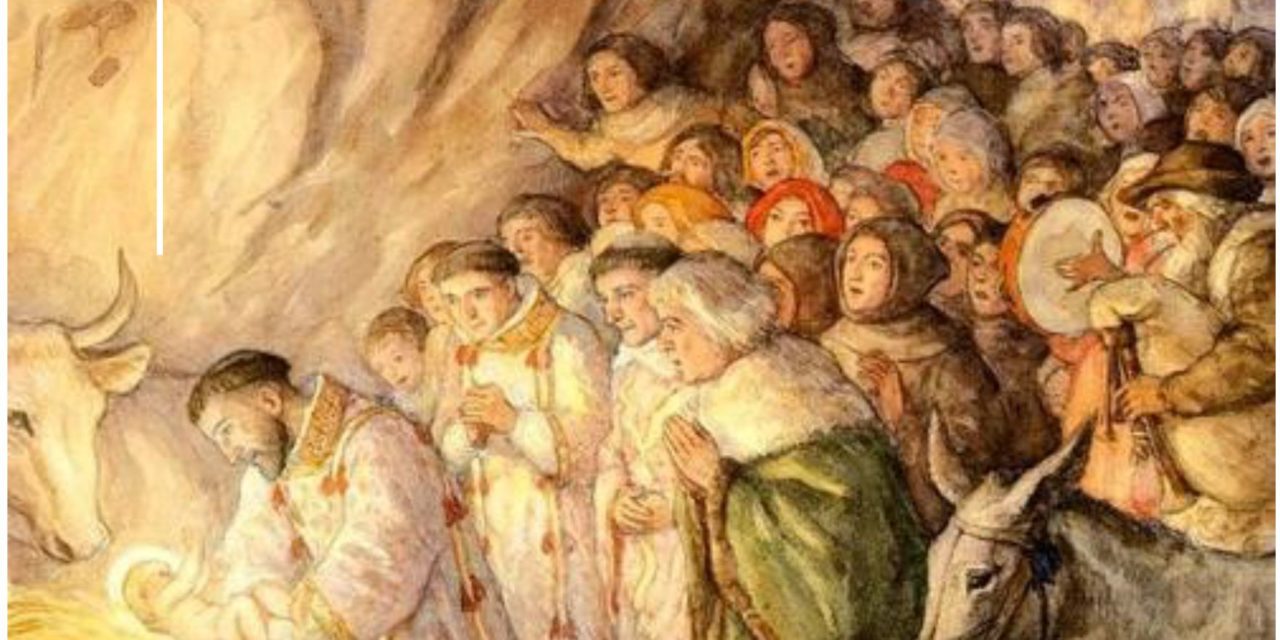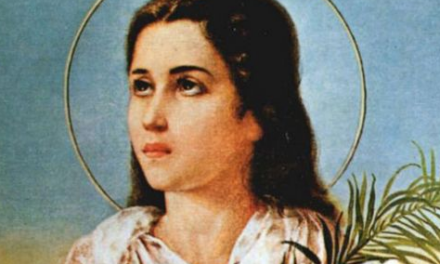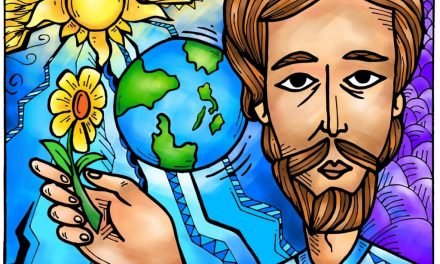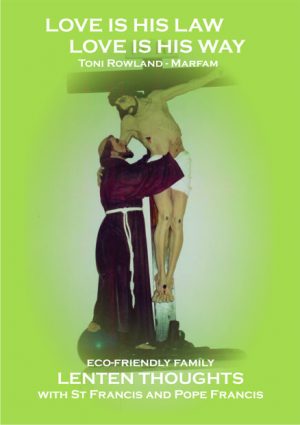December 4. Incarnation – some new insights. At the centre of the life of Francis is the Incarnate Crucified Lord of all creation, whom Francis called our “Elder Brother.” Francis also had a great love for the infant Jesus. Although he was no theologian himself, others around him and after him, like St Bonaventure and John Duns Scotus, developed Francis’ thought and experience around the Incarnation – God living among us, adding a deeper meaning to the simpler incarnation accounts so well known to us from the gospel of Matthew and Luke.
All Christians agree that Jesus is divine, but we have different views as to why God became human. Many believe that God sent Jesus primarily as the repairman to correct the damage that had been caused by the original sin of humanity’s first parents, Adam and Eve. There is another tradition within Christianity going back to the Fathers of the Church and later expressed in Franciscan spirituality.
For the theologian John dun Scotus, the reason for God’s choosing to become man is God’s love, not human sin. The Incarnation is the unique and single defining act of God’s love. If man had not sinned Christ would still have come. God freely chooses to move beyond his own self-loving and to share that loving with something other, namely all of creation, especially but not exclusively humankind. Incarnation then shows us that our primary need is not for redemption but for love. To quote: “That love of God is so utterly free and unmerited that it embraces our own limitations and our own failures, our own hopes and longings. In uniting itself to us in the Incarnate Word, Jesus of Nazareth, God’s love elevates the human project to that which it always was in the mind of God.” Incarnation in Franciscan Spirituality – Duns Scotus and the meaning of Love. By Seamus Mulholland. Scotus begins and ends with love, that love which is so hard to see in the misery of the abandoned Jesus on the cross, but glorifies the whole creational project in the Resurrection.
In essence therefore incarnation means that God becomes a human person, a baby, poor, helpless and humble. But that is not all. Because of God’s love he wants to unite himself with all of his creation, experience what we experience, suffer and rejoice in the relationships that are part of being a member of creation. God loved, God continues to love, God wants to share God’s love, be closer and be part of his creation.
Scripture and Pope Francis: St Francis faithful to Scripture invites us to see nature as a magnificent book in which God speaks to us and grants us a glimpse of his infinite beauty and goodness. “His eternal power and divinity have been made known through his works since the creation of the world.” Roman 1:20.
For Reflection and Sharing. As family members discuss this understanding of the incarnation and thank God for his love.







Recent Comments